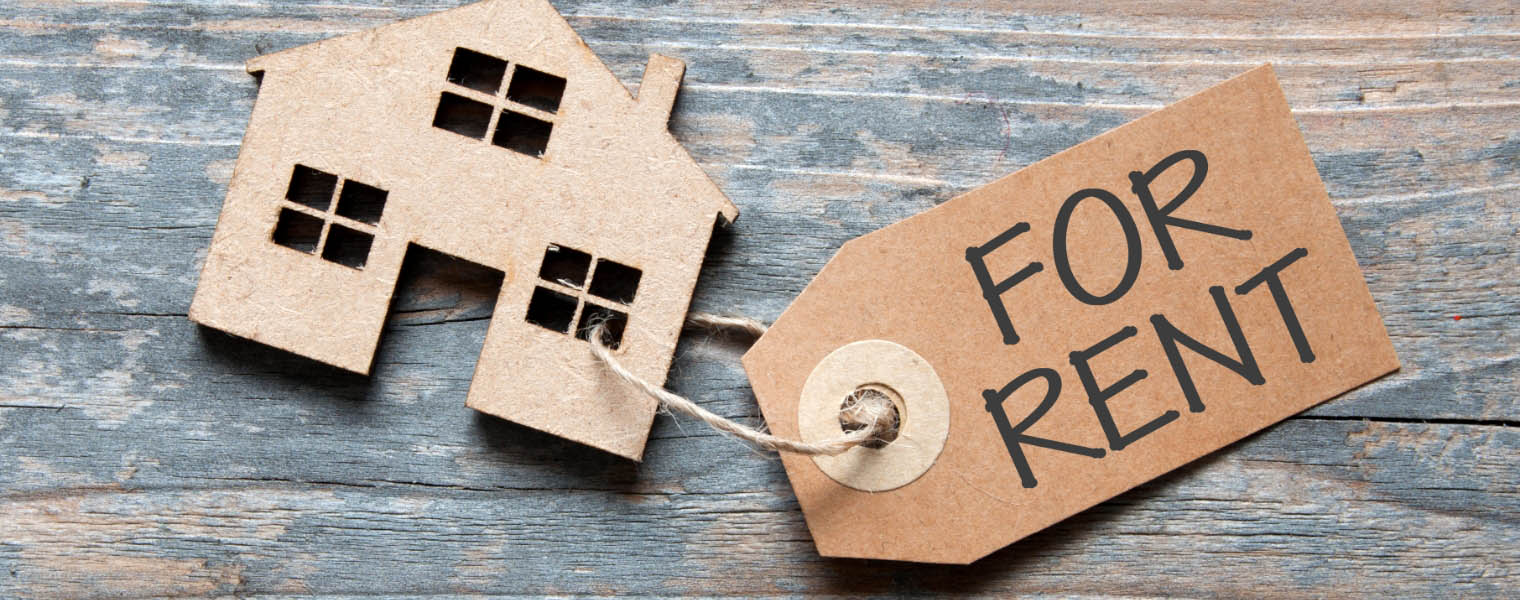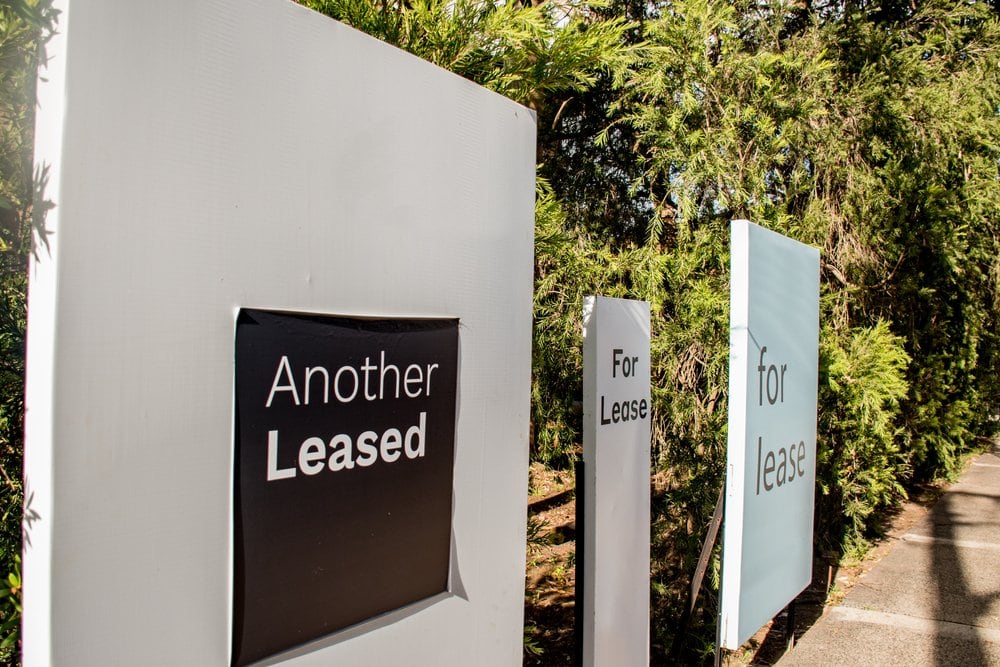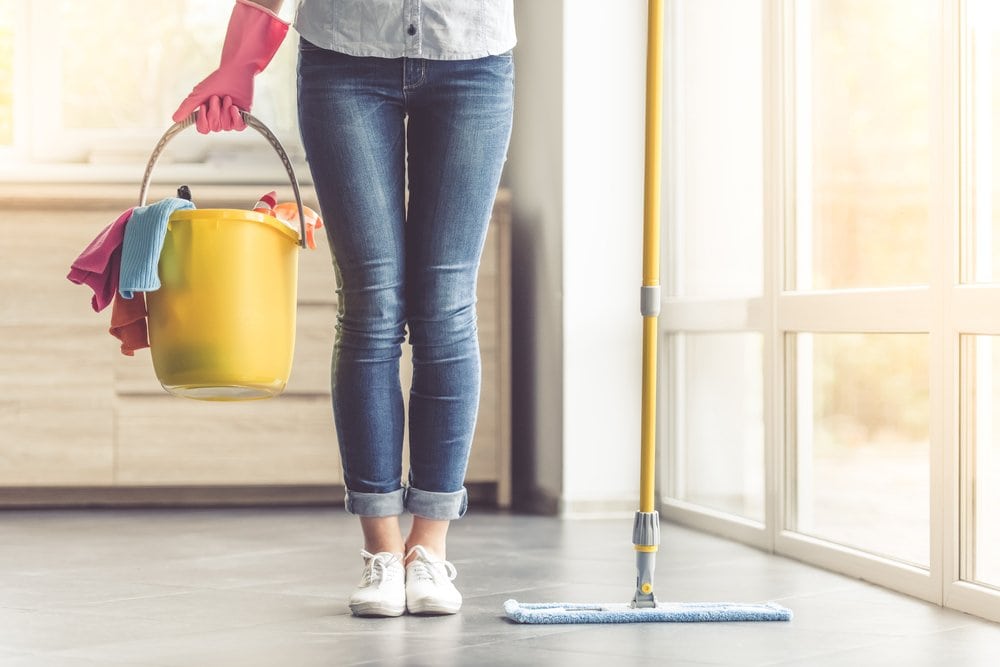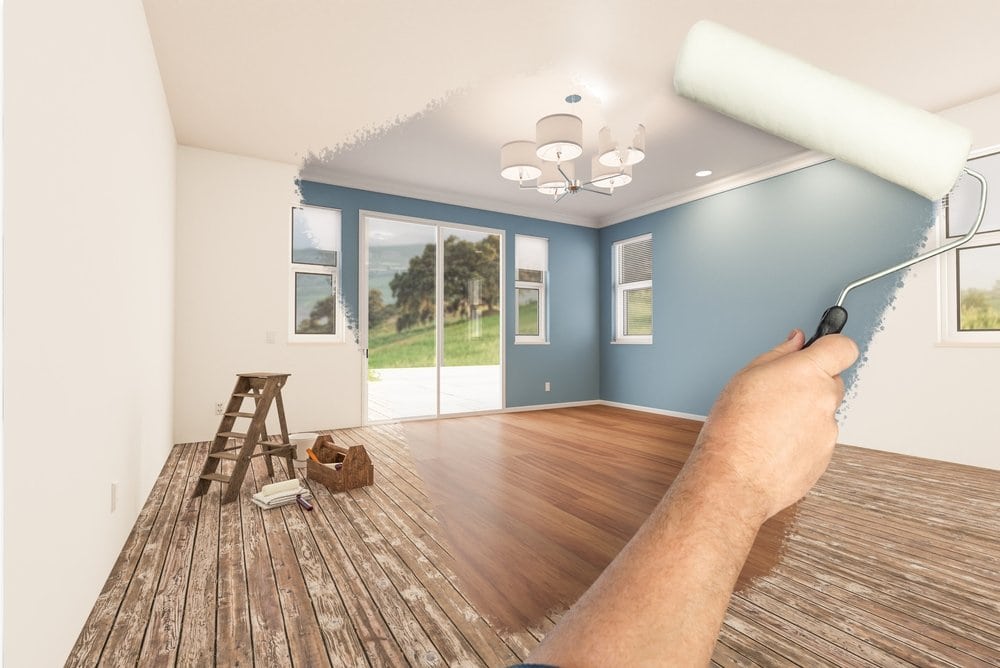How to Put Your House Up for Rent: What You Need to Prepare
- Date Listed 2nd Apr
- Written by Tanja Le Roux

Have you recently entered the real estate market as an investor?
Maybe you’ve just sealed the deal on your first rental property, or perhaps you’re looking to transition you’re old family home into an investment.
Alternatively, You may have just finished a development project where you turned one property into multiple townhouses.
Whatever the case may be, this is an exciting time in your life. You’re ready to turn your investment into a money-maker and start earning rental income.
Well, not quite.
As trusted rental agents on the Sunshine Coast, we’ve prepared a list of everything you need to think about and do before you formally become a landlord.
Why Do You Need to Prepare Your Property for Rent?
There are many reasons why you can’t just rent your investment property straight away. Here are just three of the key points:
- Homebuyers and renters look for different things in a home. Renters are not permitted to make improvements to the property, so they need everything to be in great condition from the start.
- Even if your investment property is a brand-new development, careful preparation can net you higher rental returns, better quality tenants, and a smoother investment process overall.
- There are specific regulations and standards you must meet when providing a rental property, and preparation can help you ensure you’re compliant.
18 Things to Prepare When You Put Up Your House for Rent

1. Inspect Your Home Like a Renter
Things can get pretty busy when you’re renting out your home. Before all the staging, advertising, and inspections, take the time to look at your property when it is quiet and empty.
Look for the sort of issues that a renter might look for, such as flickering or dead lightbulbs, problems with the gutters, water leaks or water pressure problems, sagging or bulging floorboards, and more.
A thorough inspection is key to identifying and resolving big issues with your rental property.
2. Take a Safety-First Approach
Everyone wants to feel safe in their own home, so make sure you have quality smoke detectors, carbon monoxide detectors, strong locks, and maybe even a security system. Small touches like a fire extinguisher under the sink and a fire blanket in the kitchen can go a long way to making your property safer and more appealing.
3. Tick Off All the Basics
Does your property have an internet connection and phone connection? What about heating and cooling systems, like split systems?
Without basics like these, potential tenants will quickly walk away, and in some cases, you might also be breaching your responsibilities as a landlord.
Curtains and blinds, quality fencing, and practical, aesthetic flooring are other basics worth investing in.
4. Complete Some Repairs for a Quick Fix
Making sure everything is in fine working condition is a quick and easy win for new landlords.
Take a look at everything you noted down from your inspection and if it’s broken or worn down, fix it or replace it.
Here are just a few repairs your property might need:
- Changing light bulbs
- Fixing broken door handles
- Servicing smoke detectors
- Tightening leaky taps
- Replacing chipped or broken tiles
- Servicing heating and cooling appliances
- Cleaning and repairing gutters and drains
5. Don’t Just Clean It – Deep Clean It!

Our rental agents work from Mons to Mooloolaba to Coulandra, and we have seen it all!
Trust us when we tell you that few things are more offputting than dirty rental properties.
You should clean your property thoroughly, starting with the basics like sweeping, mopping, dusting, removing cobwebs, and cleaning toilets, bathrooms, and kitchens.
Beyond this, it’s worth investing in professional cleaning services like carpet steam cleaning, window washing, and cleaning your curtains and blinds.
Other areas to target include:
- Indoor and outdoor bins
- Garage and storage spaces
- Flyscreens
- Tile grout
- Polishing floorboards
- Furnishings and appliances
- Heating and cooling filters
- General decluttering
- Pest control services
6. Think About Furnishings and Appliances
As a landlord, you can provide a furnished, partly furnished, or unfurnished property. You might be tempted to provide the bare minimum, but leaving some appliances and furniture in your rental can be worth it.
Things like a dishwasher, washing machine, dryer, or even a fridge can be hugely value-adding, helping you attract quality, high-paying tenants. Sofas and beds or bed frames can also be valuable if they’re in good condition.
If you already have these appliances and furnishings in your rental property or you have room for them in your budget, consider including them as part of the rental deal.
7. Think Outside the Box (and by box, we mean house!)
Outdoor living is all the rage these days, especially when you’re living on the beautiful Sunshine Coast.
With such an idyllic outdoor lifestyle on offer, it’s essential to make sure your rental property’s garden is in great condition.
A great-looking front yard can greatly enhance your property’s street appeal, while a tidy back garden gives tenants a space to entertain, throw on a BBQ, or just enjoy the afternoon sun.
Some outdoor maintenance to take care of includes:
- Mowing
- Weeding and pruning
- Removing overhanging branches and dangerous trees
- Reviving dead grass
- Sweeping porch and deck areas
- Ensuring outdoor lights are working
- Removing outdoor cobwebs
- Sweeping driveways and paved areas
- Removing concrete stains
- Fixing or removing the fence
- Dealing with outdoor insect and pest problems
- Ensuring your swimming pool is clean, tidy, safe, and compliant with all relevant laws
8. Transfer Utilities and Services
This point is especially important if you’re transitioning your property from an owner-occupied home to a rental property.
Make sure you get all your final readings for water, gas, electricity, and any other utilities, and have these services cancelled so the tenants can put them in their names.
Similarly, if you have a front door with a keycode or an alarm system, these will need to be reset and transferred to the tenant.
9. Put Pets On the Agenda
Pets are increasingly common in rental properties, so it’s worth ensuring your property is suitable for pets.
If you don’t want pets in your investment property, keep the current laws and processes in mind.
From 1 October 2022, there is a formal process a tenant can follow for requesting a pet. If the landlord does not reply within 14 days, the request will be approved automatically. Additionally, you must have a fair reason for refusing a pet request.
However, you can make reasonable requests and put certain conditions in place for pet owners, such as paying for additional cleaning at the end of the lease.
10. Make Value-Adding Improvements

As well as things like maintenance and repairs, you may choose to go above and beyond to make your rental property more appealing, which may also increase the rent.
The best value-adding improvements are simple and comparatively inexpensive while making a big difference for renters.
Think of things like a new coat of paint, replacing old lights with modern LED downlights, adding split systems to your rental, or ripping up old carpet and polishing floorboards.
If you have more room in the budget, updating wet areas like kitchens and bathrooms can add significant value and appeal to your property.
11. Find Out About Regulations and Standards
Contrary to popular belief, your responsibilities DO NOT start the day you become a landlord.
They actually start BEFORE you become a landlord.
Your property will need to meet several requirements relating to gas and electricity, swimming pools, stairs and balconies, windows and glass, water efficiency standards, smoke alarms, and the overall condition of your property (to name just a few).
When you partner with our rental agents serving Forest Glen and the Sunshine Coast, we will ensure your property meets all regulations and housing standards.
We prepare your property according to the Residential Tenancies and Rooming Accommodation Act and all other legal and industry standards.
You can also review the Residential Tenancies Authority website for information about rental law requirements on the Sunshine Coast and across Queensland.
12. Present Your Property for Advertising, Marketing, and Open Homes
Prospective tenants are no different to would-be buyers. They expect you to put your best foot forward when you put your property on the rental market.
Ensuring every room looks its biggest, brightest, and best will be beneficial when taking photos and videos for advertising and marketing purposes. If you partner with a property management company, they can prepare all these advertising materials, including written accompaniments that highlight the best features of your property.
You also need to present your property for prospective tenants to see in person. It might be worth engaging a stylist to “stage” your property with a variety of furnishings and decor. The best staging will provide a vision of what renters could achieve at the property while also leaving room for renters to picture themselves in the house.
Once again, a reputable property manager will be able to assist you with staging and presenting your rental.
13. Make Copies of Your Keys
As a landlord, you’ll want three sets of keys at a minimum. A copy for you, a copy for your property manager, and at least one copy for your tenant(s).
As well as your front door and backdoor, think about your letterbox, shed, garage, any windows with locks, and more.
You might also need to make copies of remote controls, security cards, and other access technology.
14. Update Your Mortgage and Insurance
If you’re becoming a landlord, you’re going to need landlord insurance, so get in touch with your insurance company and update accordingly. If you were previously living in your rental property, you will need to swap over from homeowners insurance.
If you’re changing from owner-occupied to investment property, you will also need to contact your mortgage company and change your loan accordingly.
15. Put Together a Rental Agreement
It’s essential to put everything in writing when entering into a tenant-landlord relationship.
The main documentation you will need to prepare is a rental agreement (also known as a lease agreement or tenancy agreement).
This contract outlines each party’s rights and responsibilities during the rental period and covers the length of the rental period, how and when to pay rent, the rental amount, and more.
You can prepare a rental agreement with the help of a lawyer or your property manager.
16. Start Thinking About Tax Benefits
As a property investor, you may be able to take advantage of several features of Australia’s tax system. You can claim deductions on certain property expenses, the interest on your investment loan, and more. You may also be able to reduce your tax as the condition of your property depreciates over time.
If you spend more money on your property than you get from rental income, you are making a loss and can take advantage of negative gearing benefits. On the other hand, if you make more money on your investment than you spend, you will need to pay extra taxes.
It’s worth thinking about all this from day one because some of your repairs and ongoing maintenance may be tax deductible. Chat with your property manager or a trusted accountant for more information.
17. Determine Property Value and Screen Tenants
Once you’ve taken all the above steps and your property is almost ready to rent, you can start thinking about how much rent you can charge. One way to do this is to compare your property to similar nearby rentals and see what they are charging. Thinking about the time of year and current demand in the market is also important.
You also need to find tenants, and you don’t want to rent your property to the first person who walks through your door – especially if you haven’t checked their credentials. Proof of employment and income, identity documents, and information about rental history are just some of the important credentials to double-check.
Trying to set the right rental price and finding tenants can be difficult and time-consuming on your own, so you should always partner with a rental agent for this step of the process.
18. Partner with a Property Management Company

If the above list tells you anything, it’s that being a landlord is hard work. And all this is before you even get a tenant! If you want help with everything from inspections and additions to maintenance, repairs, and open homes, you need a reputable property management company..
Your property manager can organise cleaning and repairs, screen tenants, set the rent price, prepare the rental agreement, market your property, run open homes, ensure your property meets legal requirements, and much more. Once you have tenants, a property manager will deal with them directly, so you don’t need to worry about things like collecting rent or handling complaints.
Hiring a quality property manager is the best investment you can make in the future and the success of your rental property!
Are You Ready To Become a Landlord?
There are many benefits of investment in a rental property, from increased cash flow and potential tax benefits to long-term capital growth, property appreciation, and wealth creation.
However, property investing also has its downsides to consider. Property is an illiquid investment and you may come across difficult tenants. Investing in property also comes with ongoing expenses and a lot of responsibilities, which makes the whole process time-consuming.
So, if you’re looking to get into property investing, make sure you partner with a professional.
We Do Property are leading rental agents working in Palmview, Palmwoods, and all across the Sunshine Coast.
To discover our all-inclusive approach to property, view our services and contact We Do Property today.
Please provide your details below to submit your enquiry to our Customer Care team.




